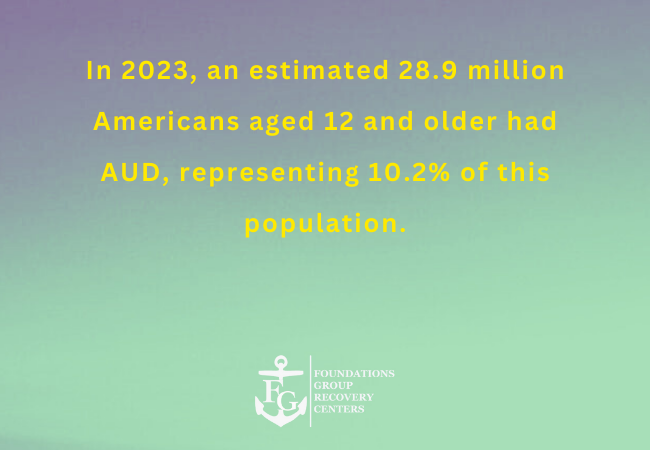When seeking treatment for alcohol or substance use disorder, selecting the right program is critical to long-term success. The two primary treatment options available for individuals struggling with addiction are Day Treatment Programs, also known as Partial Hospitalization Programs (PHPs), and Inpatient Care (Residential Treatment). Both provide structured therapy, medical supervision, and relapse prevention strategies, but they differ in intensity, time commitment, and flexibility.
At Foundations Group Recovery Centers, we understand that no two recovery journeys are the same. That’s why we offer Day Treatment Programs in Massachusetts, along with a full spectrum of addiction treatment services, to help individuals find the right program for their specific needs.
This guide will explore:
- What day treatment and inpatient care entail
- The key differences between the two programs
- Who benefits most from each type of treatment
- A breakdown of treatment components and therapies offered
- The cost and insurance considerations for each treatment option
- How to transition from inpatient care to day treatment for continued support
What Is Day Treatment?
Overview of Day Treatment Programs
A Day Treatment Program, also referred to as a Partial Hospitalization Program (PHP), is an intensive, structured outpatient program that provides comprehensive medical support, therapy, and counseling while allowing individuals to return home at night.
How Day Treatment Works
- Patients attend treatment sessions for several hours per day, usually five to six days a week.
- Treatment includes individual therapy, group counseling, medication-assisted treatment (MAT), and relapse prevention education.
- Participants return home in the evenings, where they can apply the recovery skills they learn in treatment.
Who Is Day Treatment Best For?
Day Treatment is an effective option for individuals who:
- Have moderate to severe alcohol or substance use disorders but do not need 24/7 supervision.
- Require medical support for withdrawal symptoms or medication management but can remain stable outside of a treatment facility.
- Have completed inpatient rehab and need ongoing intensive care.
- Have a supportive home environment where they can maintain their recovery outside of treatment hours.
- Need a structured program but must also balance work, school, or family obligations.
What Is Inpatient Care?
Overview of Inpatient (Residential) Treatment
Inpatient care, also known as residential rehab, is a full-time, immersive treatment program in which individuals live at a treatment facility while receiving 24/7 medical and psychological support.
How Inpatient Treatment Works
- Patients stay at the rehab center full-time for several weeks to months.
- Treatment includes medically supervised detox, individual therapy, group therapy, family counseling, and holistic therapies.
- Individuals are removed from external triggers, allowing them to fully focus on recovery in a controlled, supportive environment.
Who Is Inpatient Care Best For?
Inpatient care is typically recommended for individuals who:
- Have severe addiction that requires 24/7 supervision and medical intervention.
- Are experiencing intense withdrawal symptoms that require medically managed detox.
- Have a history of relapse and need a controlled environment.
- Do not have a stable home environment that supports sobriety.
- Have co-occurring mental health disorders that require specialized, round-the-clock care.
Key Differences: Day Treatment vs. Inpatient Care
| Feature | Day Treatment (PHP) | Inpatient Care (Residential Rehab) |
|---|---|---|
| Time Commitment | Several hours per day, five to six days a week | 24/7 stay in a treatment facility |
| Flexibility | Allows individuals to return home daily | Full-time commitment |
| Medical Supervision | Available during program hours | 24/7 medical and psychological monitoring |
| Ideal For | Individuals with moderate to severe addiction who have a stable home environment | Individuals with severe addiction, withdrawal symptoms, or a high risk of relapse |
| Cost | More affordable than inpatient rehab | More expensive due to full-time care |
| Therapy & Support | Intensive individual, group, and medical support | Comprehensive therapy, detox, and round-the-clock support |
| Environment | Patients live at home and attend daily treatment | Patients live in a supervised, controlled environment |
Cost and Insurance Considerations
Cost of Day Treatment vs. Inpatient Care
- Day Treatment is typically more affordable because it does not include housing or 24/7 supervision.
- Inpatient Care is more costly due to accommodation, meals, and full-time staff.
Insurance Coverage
Many insurance plans cover both Day Treatment and Inpatient Care, but coverage depends on:
- The severity of the addiction and medical necessity
- Length of stay recommended by treatment professionals
- Out-of-pocket costs and deductibles
Before beginning treatment, it is recommended to verify insurance benefits and coverage options with a provider like Foundations Group Recovery Centers.

Transitioning from Inpatient Care to Day Treatment
For individuals who begin their recovery in inpatient rehab, transitioning to Day Treatment is often the next step in long-term recovery.
Why Transitioning Matters
- Inpatient care provides a safe, controlled environment, but returning home can present new challenges and triggers.
- Day treatment provides continued structure and therapy while allowing individuals to gradually reintegrate into their daily lives.
Steps for a Successful Transition
- Develop a Personalized Relapse Prevention Plan
- Identify triggers and high-risk situations.
- Establish coping strategies and support systems.
- Continue Therapy in a Day Treatment Program
- Maintain individual and group therapy sessions.
- Engage in behavioral therapy and medical support.
- Step Down to Outpatient Care for Long-Term Support
- Transition from Day Treatment to a Half Day Program or Standard Outpatient Treatment.
- Participate in sober living programs, peer support groups, and alumni networks.
By following a structured step-down approach, individuals can maintain long-term sobriety and relapse prevention strategies.
Why Choose Foundations Group Recovery Centers?
At Foundations Group Recovery Centers, we provide personalized, evidence-based addiction treatment tailored to each individual’s recovery needs.
What Makes Our Programs Stand Out?
- Comprehensive Day Treatment Programs in Massachusetts that balance intensive care with flexibility.
- Full continuum of care, including Half Day Treatment, Outpatient Programs, and Aftercare Support.
- Licensed medical professionals and addiction specialists to oversee medication-assisted treatment (MAT) and relapse prevention.
- Therapy for co-occurring mental health conditions, ensuring a holistic approach to recovery.
- Strong peer support, family therapy, and alumni programs to promote long-term success.
Whether you need Day Treatment or Inpatient Care, our team is here to help you find the best recovery path.
Conclusion
Choosing between Day Treatment and Inpatient Care depends on:
- The severity of the addiction
- Personal and family responsibilities
- The need for medical supervision
- Financial and insurance considerations
Both programs provide structured, evidence-based care, but the right choice depends on individual needs and recovery goals.
If you or a loved one is struggling with alcohol or substance use disorder, seeking professional help is the first step toward a healthier, sober life. At Addiction Treatment Center in Massachusetts, we offer comprehensive addiction treatment programs to support individuals at every stage of recovery. Call Us Today at 844.763.4966 to Learn More About Our Day Treatment and Inpatient Care Options. Your path to a healthier, sober future starts today.
FAQ on Day Treatment vs. Inpatient Care
What is the difference between Day Treatment and Inpatient Rehab?
Day Treatment (PHP) allows individuals to receive structured therapy and medical support during the day while returning home at night. Inpatient Rehab, on the other hand, requires individuals to stay at a treatment facility 24/7 for more intensive care.
Who is best suited for Day Treatment?
Day Treatment is ideal for individuals who:
- Have moderate to severe substance use disorder but do not require 24/7 supervision.
- Need structured therapy, medical support, and relapse prevention strategies.
- Have a supportive home environment and a low risk of immediate relapse.
- Need intensive care but must balance work, school, or family responsibilities.
Who should consider Inpatient Rehab instead?
Inpatient Care is best for individuals who:
- Have severe addiction that requires 24/7 supervision and medical intervention.
- Experience severe withdrawal symptoms and need medically assisted detox.
- Have a history of relapse and need a controlled environment.
- Do not have a stable home environment that supports recovery.
How long do these programs last?
- Day Treatment Programs typically last four to six weeks, with treatment sessions occurring five to six days a week for several hours per day.
- Inpatient Rehab lasts anywhere from 30 to 90 days, depending on the severity of the addiction.
Is medical detox included in Day Treatment?
Day Treatment does not typically include medically supervised detox, but individuals may begin with detox services before transitioning into the program. If detox is needed, our team will guide you through the process.
Can I work while attending a Day Treatment Program?
Many individuals continue working while in Day Treatment, though adjustments to work schedules may be necessary. After completing Day Treatment, many transition into Half Day Treatment or Outpatient Programs for continued flexibility.
Is Day Treatment covered by insurance?
Most insurance plans cover both Day Treatment and Inpatient Rehab, but coverage varies. Foundations Group Recovery Centers can help verify your insurance benefits and guide you through the process.
What happens after I complete a Day Treatment or Inpatient Program?
After completing either program, individuals transition to a lower level of care, such as:
- Half Day Treatment (Intensive Outpatient Program – IOP) for continued structured support.
- Outpatient Addiction Treatment for long-term relapse prevention.
- Sober living programs or 12-step groups for peer support and accountability.

